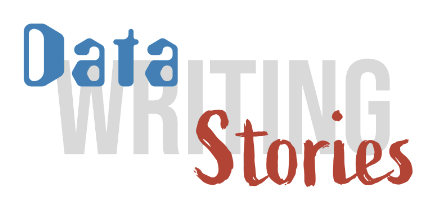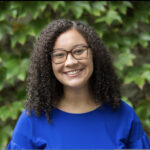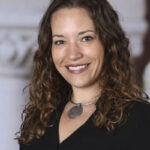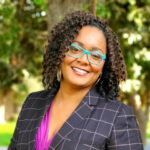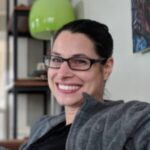There is growing interest in integrating data literacy and data science throughout the K-12 curriculum. One practice that is increasingly common in the professional world, and is generating enthusiasm from educators, is data storytelling. In data storytelling, the presentation of data and statistics are coupled with other visual and narrative elements to explain what is done to data during the process of analysis, why such analysis is important, and to communicate to a broad audience the results and their implications.
The Writing Data Stories Project (NSF IIS-1900606) brings together a team of researchers from University of California Berkeley, NC State University, and the Concord Consortium to integrate computational data analysis into the middle school science curriculum in a longitudinal, interdisciplinary way – drawing from the computer and data sciences, literacy studies, statistics, and science education to saturate the classroom with relevant tools, resources, and support. Our project seeks to introduce students to data storytelling by encouraging them to articulate their personal and social connections to data as they simultaneously engage with the statistical patterns contained therein.
Goals
The project provides a research context to address the following questions:
- How do students learn, over time, to use computational tools to structure, calculate, filter, and transform data for scientific inquiry?
- What patterns of engagement in scientific practices are supported by the integration of computational data analysis and visualizations into the science curriculum?
- What new literacy practices might support engaging oral and written arguments and explanations using data and visualizations as evidence?
Specifically, it brings together and seeks to extend three complementary research constructs. Data moves are the computational actions analysts take to transform and analyze datasets. Syncretic texts are specialized texts that blend academic discourse, such as the formulae and statistical language needed to explain data analysis, with the familiar modes of expression (including home languages, interviews, journalistic sources, and alternative forms of expression such as video, art, animation, etc.). Finally, data storytelling encourages students to weave their personal experiences, different modes of expression, and not only their findings but also their reflections and processes for working with data.
Classroom Ready Materials
The Writing Data Stories project team has developed three main sets of classroom-ready materials that can be used to support data explorations in middle school science (and mathematics or social studies) instruction. Visit the Resources page or click the icons below to learn more:
DataBytes

Quick activities (30 min or less) that invite students to connect data to their experiences and the world.
Include teacher prompts and data visualizations about everyday scientific issues from news sources or classroom curriculum.
Latest News and Publications
You can see all of our papers and major presentations on the Publications page.
-
Teachers & DataViz Discussions in IJSME
Leading classroom dataviz discussions can be tricky. This paper examines how a dataviz discussion guide can help teachers stay flexible, while meeting specific mathematical and scientific learning goals. Continue reading…
-
Exploring Local Impacts and Global Change w/ Data
A new paper describes one of the units developed as part of the Writing Data Stories project, focused on connecting the local and global effects of climate change through storytelling and data. Continue reading…
-
Data Science Ed at ICME-15
We’re excited to be a part of the upcoming 15th International Conference in Mathematics Education (ICME-15)! Michelle will be serving as a co-chair (with Daniel Frischemeier) of Topic Study Group 3.18, focused on Data Science Teaching and Learning. She’ll also be sharing work co-authored with Hollylynne Lee and Gemma Mojica exploring the use of the […] Continue reading…
-
CoRE Lab at AERA 2024
We will be presenting several strands of work at the upcoming 2024 Annual Meeting of the American Educational Research Conference in Philadelphia. This year, much of our work has focused on teachers’ and teacher educators’ perception and uptake of more socially-aware approaches data literacy education. We have also continued to develop our line of research […] Continue reading…
-
CUNY/CITE Summer Camp
We will be running a teacher educator Summer Camp as part of the City University of New York’s Computing Integrated Teacher Education program! Our summer camp is called “Writing Data Stories: Connecting Student Experience and Data,” and will be introducing the frameworks and materials we’ve developed as part of the Writing Data Stories project in […] Continue reading…
Icon Credits: analytics by SBTS at thenounproject.com; data visualization by Vectors Point at thenounproject; presentation by Drishya at thenounproject.com

This material is based upon work supported by the National Science Foundation under Grant No. (IIS-1900606). Any opinions, findings, and conclusions or recommendations expressed in this material are those of the author(s) and do not necessarily reflect the views of the National Science Foundation.
